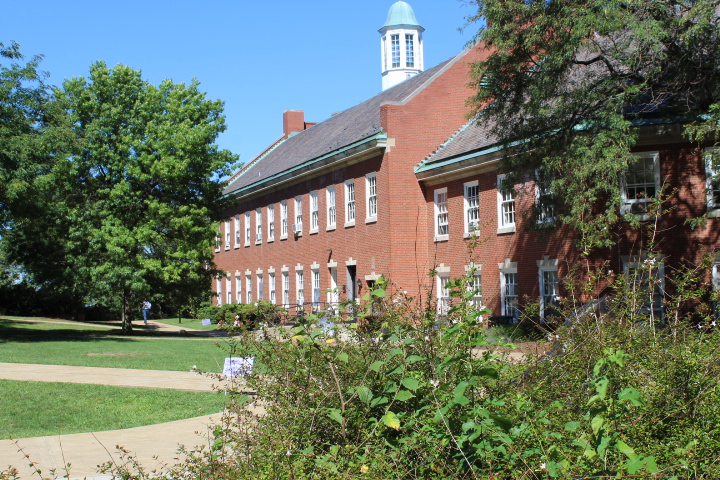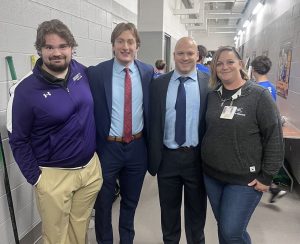College workloads take a toll on professional development
December 12, 2022
Tell me if this is a familiar story: you’re a third-year student at Chatham University and you’re trying to knock out the internship requirement over a semester. You’re taking 16 credits (one above 15 from that pesky wellness class), and you’re trying to keep up with your position in your beloved student organization.
Did I mention that your internship is unpaid and your student loans are racking up?
College students are being asked to do too much.
It takes 120 credits to graduate at Chatham, which means in four years, students would have to take 15 credits every semester, assuming they don’t do any classes over the summer. Fifteen credits means approximately 15 hours of in-class time every week.
Frankly, I don’t know any full-time college student who would say they do anywhere close to just 15 hours of school work a week. Students also are expected to study, do homework, complete an internship and find a way to pay the bills every semester.
According to the National Center for Education Statistics, in 2020, approximately 40% of full-time undergraduate college students were employed.
Think about that for a moment: around 40% of college students are employed. That means potentially 40% of Chatham students are doing a paid job alongside the required internship and 15 credits.
Let’s take sports into account, too. According to Leonard Trevino, Director of Athletics at Chatham, approximately 40% of Chatham students are or were student-athletes. Sports, grades, a job, an internship and responsibilities keep piling up.
There is a reason it’s called full-time when students take 12 credits a semester. There are real consequences to having students work this much.
If college is meant to prepare students for the job market, students should leave with an impressive resume of work. There’s little-to-no time for job fairs and networking when you’re knee-deep in Brightspace discussion posts. There’s minimal time for making friends when you’ve got three presentations on the same day. How are students supposed to learn soft skills like communication and teamwork when the only time they have to talk with peers is in a classroom?
It takes more than a degree to get a job in most fields, but work experience is hard to gather when you have to write 10 pages in a week.
This semester, I’m taking 15 credits, doing an internship at a local magazine and working at the Communiqué as an editor. Fifteen credits is the lowest number I’ve taken since coming to Chatham. At one point in the semester, I was working on eight articles with my internship and classes combined.
Keeping on top of everything has been a challenge, and I’ve had the privilege of not working a part-time job during the semester. Trying to work on projects or spend time on hobbies outside of work was nearly impossible.
This workload isn’t healthy or productive. Students should be able to clock out at the end of the night. They shouldn’t be setting alarms for 2 a.m. so they can squeeze in a few hours of sleep before working. (Yes, that is a strategy I use, and yes, it is indicative of a greater problem.)
Colleges like Chatham can improve the quality of education by reducing classroom workloads so students have time to get relevant work experience. Chatham is a small school, so opportunities for experiential learning in the classroom are limited by the resources available.
So let it happen outside of the classroom. Stop standing in students’ ways and encourage them to get real-world experience in their major.
Classrooms can teach a lot, but not what can be taught on the job. Colleges need to be a mix of both if students are to succeed. I could have written a thousand essays, but nothing would compare to the things I learned working at my internship this semester.
Students come to college to learn, and right now it seems like the most important thing they’re being taught is how to ignore good opportunities in their dream field to write essays that only their professor will see.








